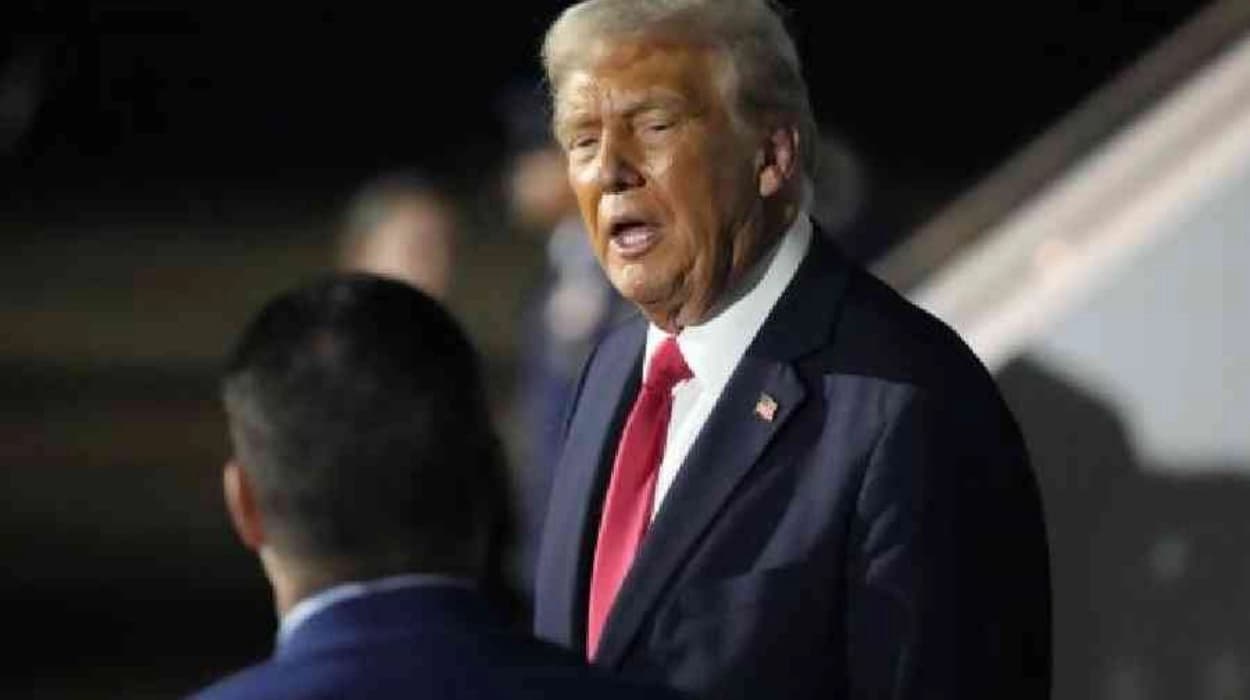US President Donald Trump concluded his second state visit
to the UK with a public disagreement over British Prime Minister Keir Starmer's
plan to recognise a Palestinian state. The visit was marked by large protests
against Trump, centred on criticism of US policies towards Israel and the
conflict in Gaza.
Trump’s Disagreement with Starmer on Palestine
US President Donald Trump openly stated at a joint press conference that he disagreed with British Prime Minister Keir Starmer over the UK’s move to recognise Palestinian statehood. As reported by Xinhua’s correspondents, Trump said,
“I have a disagreement with the prime minister on that score... One of our few disagreements, actually,”
when asked directly
about the recognition plan shortly before the end of his state visit.
Keir Starmer, who announced in July the UK would formally
recognise Palestine unless Israel made substantive steps to end the Gaza
conflict, confirmed the timing of the recognition was unrelated to Trump's
visit. Starmer said the UK’s decision would be formalised shortly after Trump
departed, underscoring that the move aimed at promoting peace.
As detailed by Yonah Jeremy Bob of The Times of Israel, Starmer emphasised that although he and Trump differed on this issue, they shared agreement on the need for peace and a roadmap in the region. Starmer called on Gaza’s terror groups to release the remaining 48 hostages and urged Israel to surge humanitarian aid into Gaza. Trump echoed the call for immediate release of hostages, stating,
“We have to have the hostages back immediately, not one, not two, or ‘We'll give you three tomorrow.’ That’s what the people of Israel want. And we want the fighting to stop.”
Statements on Hamas and Peace
At the Chequers press conference, Starmer was unequivocal about Hamas’s role, saying,
“Hamas is a terrorist organisation who can have no part in the future governance of Palestine.”
Trump responded warmly to this,
physically patting Starmer on the back.
The British Prime Minister condemned Hamas’s attack on 7 October as
“the worst attack since the Holocaust.”
He expressed solidarity with
Israel, saying he has “extended family in Israel” and understands the
psychological impact on the Israeli population.
Trump, meanwhile, accused Hamas of “putting the hostages up
as bait” and described the situation as “pretty brutal,” signalling his concern
over the ongoing conflict.
Economic and Technological Cooperation Amid Political Differences
Despite the political disagreement on Palestine, the UK and
US reached an agreement during the visit to boost cooperation in technology
sectors. Microsoft announced a $30 billion investment in AI infrastructure in
Britain, and Google committed to opening a data centre in Hertfordshire. This
multi-billion-dollar tech deal aimed to enhance collaboration in artificial
intelligence, quantum computing, and nuclear energy.
Protests During Trump’s UK Visit
Trump’s visit stirred significant public unrest. Thousands
of protesters marched through central London, carrying placards with slogans
like “No to racism, no to Trump” and “Stop arming Israel,” criticising US
policies on the Gaza conflict, as reported by Al Jazeera’s correspondent Mil
Veselin. Demonstrations also occurred near Windsor Castle, where Trump met King
Charles.
Amanda, a protester who flew in from Los Angeles, told Xinhua reporters,
“We don’t have good leadership, and I’m very worried about the direction that the United States is taking and the world.”
The protests reflected widespread British public disapproval
of Trump, with recent polls showing 70% of Britons hold negative views of him
and 44% wishing for the cancellation of his state visit, according to NBC News.
Diplomatic and Ceremonial Highlights
During the visit, Trump was welcomed with traditional
ceremonial honours at Starmer’s country residence in Chequers, including an
honour guard and bagpipers recognising his Scottish heritage. He also visited
Windsor Castle, meeting King Charles amidst protests outside and the arrest of
four demonstrators.
As reported by The Independent, the visit also included
discussions on the UK-US “special relationship,” which both leaders framed as
strong despite political differences.
Migration and Security Discussions
Beyond Middle East issues, Trump openly discussed migration, addressing the UK’s challenges with illegal boat crossings in the English Channel. He suggested the UK might consider military involvement to curb immigration, drawing parallels to his own US border policies. Starmer welcomed initial steps to manage migrant returns, calling recent flights under a migrant return agreement with France an “important step forward.”
